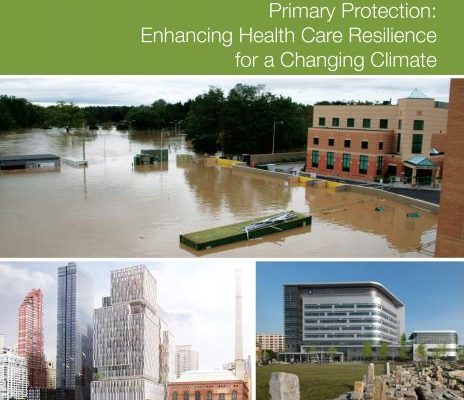Health care organizations play a key role in community resilience. Climate change, by increasing the intensity and frequency of some extreme weather events, is creating complex hazards that challenge accepted baseline assumptions for infrastructure capabilities, redundancies, and disaster preparedness and response—and this means a need for new building design thresholds.
Essential health services must remain available to communities and individuals during and immediately following extreme weather events, even during extended utility outages and transportation infrastructure disturbances. Resilient health care organizations must anticipate extreme weather risks and transcend limitations of regional public policy, local development vulnerabilities, and community infrastructure challenges as they site, construct, and retrofit health care facilities.
To assist with building resilience, the Department of Health and Human Services (HHS) has developed the Sustainable and Climate Resilient Health Care Facilities Toolkit. Developed through a public-private partnership with the health care industry, the Toolkit consists of an overview guide document and a suite of online tools and resources that highlight emerging best practices for developing sustainable and climate-resilient health care facilities. The guide provides a compilation of information on threats to health care facilities posed by extreme weather events and ways in which organizations around the country are responding to those threats.
Robin Guenther, FAIA, LEED Fellow and John Balbus, MD, MPH, were primary authors on this resource.

